Strengthening research, technological development and innovation
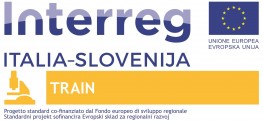
Promoting innovation capacities for a more competitive area
To increase cooperation among key biomedical entities like research institutes, universities and companies, in order to create a service platform based on an innovative combination of two biomedical techniques, cell biology and large-volume data analysis, within the context of cardiological and neuro-inflammatory diseases, problems associated with difficult wounds, and other potential pathologies, thus increasing competitiveness in the biomedical research sector.
The project tackles the common challenge of the Europe 2020 Strategy for Smart Growth, the Italy-Slovenia Program, and the Smart Specialisation strategies of the three areas, which is to strengthen the synergies among research institutes and companies in order to accelerate innovation through technology transfer between these key entities. The TRAIN project conducts interdisciplinary research studies with new technologies, and the project’s partners consist of 2 leading research institutes, 1 training institution, 1 biomedical SME, and 2 clusters of biotech companies. The aim is to combine the current expertise in biomedicine (Ita) and bio-informatics (Slo) in order to improve the diagnosis and treatment of various diseases, such as myocardial infarction, difficult wounds, and neuro-inflammatory diseases, with the goal of accelerating the technology transfer from the research sector to the industrial sector thanks to the creation of a series of kits available to biomedical companies for developing new biopharmaceutical products. The outputs are as follows: 1) biological and bioinformatical services for the identification of new biomarkers and therapeutic compounds; 2) test tube disease models; 3) validated kits ready for use; 4) technology transfer to biotech companies. The beneficiaries will be SMEs, clinical professionals, students, researchers, patients and healthcare systems. The approach consists of the combination of two scientific fields, the involvement of the SME partner in a case study, and the transfer of the results to companies. The cross-border approach is essential because a greater scientific, economic and social impact can only be achieved through the combination of the complementary forms of expertise found within the program area. The project is innovative because it represents the first time that two distinct areas of research will be brought together to develop ready-to-use kits for professionals operating in the biomedical sector, thereby increasing the potential for marketing and use throughout the cross-border area.
Increased cooperation among biomedical research centres, companies, and clusters operating within the program area through the creation of a lasting cross-border network for the joint development of a technological platform that brings together two distinct disciplines for the first time, with applications in different biomedical fields, including myocardial infarction, difficult wounds, neuro-inflammatory diseases and others; this will improve the knowledge and therefore the competitiveness of the program area in these and other potential health sectors. The increase in cooperation will be evident in the project’s key research and innovation activities, as well as in the transfer of the results; in fact, the planned research requires the scientific excellence offered by the ICGEB and IJS research centres and the Experteam partner company, the ability to capitalise on the results offered by the two clusters located respectively in Slovenia (Ljubljana Technology Park) and Italy (Biovalley), and the experience in the advanced training of researchers and professionals in the biomedical sector offered by the PP MPŠ. The partners have many years of experience in their respective fields, and intend to continue collaborating even beyond the geographical dimension and duration of the project itself, with the aim of becoming a reference group for research and innovation relating to the production of ready to use cell function analysis kits for numerous biomedical and pharmaceutical companies. Combined with the technology transfer activities, the continuation of the network launched by this partnership and extending to the cross-border area will ensure that the research carried out will have a significant impact upon society, thanks to the potential treatments facilitated by its results, as well as on the market, given the global frequency of the target pathologies.
Lead Partner
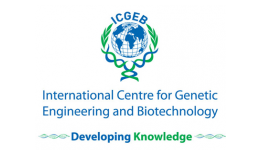
Project partner 1
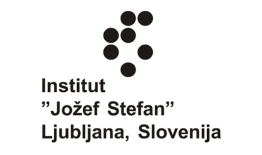
Project partner 2
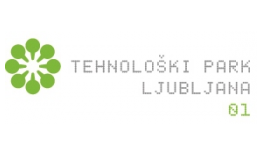
Project partner 3
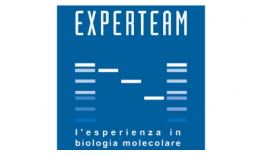
Project partner 4
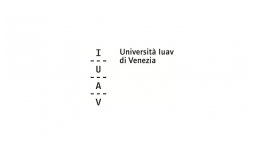
Project partner 5
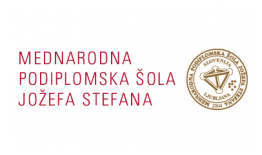
| Poster Annual Event 30/05/2018 (ita) Train_ITA.pdf ( 493 bytes, published on 20 July, 2018 - 13:04 ) | |
| Brochure TRAIN (ita-slo) TrainBrochure v12-web-compressed.pdf ( 492 bytes, published on 12 November, 2018 - 15:39 ) | |
| ICGEB Workshop Bled 13-17/2019 Bled_ICGEB_TRAIN.pdf ( 384 bytes, published on 17 February, 2020 - 11:04 ) | |
| Experteam Workshop Ca'Foscari Venezia 09/09/2019 Experteam-TRAIN_workshop_eng.pdf ( 638 bytes, published on 17 February, 2020 - 11:04 ) | |
| TRAIN @ MeetInItaly 2019 flyerMeetInItalyENG.pdf ( 2 bytes, published on 17 February, 2020 - 11:04 ) | |
| TRAIN Workshop MeetInItaly 2019 MeetInItaly TRAIN workshop.pdf ( 1 byte, published on 17 February, 2020 - 11:04 ) | |
| Technology and Knowledge Transfer: Promoting Innovation Capacity and Competitiveness Based on a New Cross-Border BioTech Station BioTech station action plan.pdf ( 835 bytes, published on 9 March, 2020 - 17:12 ) | |
| TRAIN Resource Container (ENG) TRAIN, Resource container, WP3.3.3.pdf ( 88 bytes, published on 18 May, 2020 - 10:48 ) | |
| Unconference Agenda ITA SLO ENG agenda Unconference_public_final_3lang.pdf ( 322 bytes, published on 9 June, 2020 - 17:49 ) |
MAIN OBJECTIVES OF THE PROJECT
The overall objective of the project is to increase cooperation between key biomedical subjects such as research institutes, universities and companies to create a service platform based on an innovative combination of two disciplines, cellular biology and the analysis of large amount of data, in the context of cardiac and inflammatory pathologies, of problems related to difficult wounds and other potential pathologies, thus increasing the innovation and competitiveness in the biomedical research sector.
CURRENT SITUATION OF THE PROJECT IMPLEMENTATION (30/05/2018)
The scientific partners are collaborating for the analysis of data generated by high-throughput screening, aimed at identifying compounds capable of modulating cardiac fibrosis. All the partners have started mapping the local companies and institutions that could benefit from the services developed by TRAIN, as well as a pilot project aimed at validating, through cell assays, the presence of contaminating micro-organisms in food products.
CURRENT SITUATION OF THE PROJECT IMPLEMENTATION (12/14/2018)
During 2018, research and collaboration activities by scientific partners have been extremely important.
The studies carried out in the lead partner laboratories focused on tests to evaluate the effectiveness of the chemical compounds identified by IJS capable to modulate the activation of myofibroblasts in cellular models of cardiac and pulmonary fibrosis.
ICGEB has continued the research to produce heart tissue in test tubes, cultivating cardiomyocytes, fibroblasts and endothelial cells. All in hypoxic conditions, to bring the natural situations of a myocardial infarction closer together, which inevitably accompanies a reduction of the oxygen supply to the heart cells.
These experiments have also led to the definition of protocols for the isolation and culture of skin cells, as a difficult wound model on which to study the potential therapeutic effect of pro-angiogenetic compounds, and able to stimulate a greater wound vascularization and therefore to promote healing.

At the same time, ICGEB and IJS elaborated the data of another screening aimed at defining microRNA capable of modulating the proliferation of pulmonary artery smooth muscle cells. IJS has processed the data identifying, for each microRNA, the potential target genes and arriving at the definition of a series of genes that seem to be those most responsible for the proliferation of these cells.
Furthermore, previously optimized assays were validated (proliferation, cell death, oxidative stress and angiogenesis).
Regarding the research of tests for the detection of pathogens present in water and food, Experteam, in collaboration with the ICGEB, carried out research in the laboratory aimed at identifying an economically sustainable scientific protocol. Two paths to date followed, using molecular biology techniques, PCR to amplify DNA sequences and HCA (high content analysis) to view events related to the presence of pathogens. Using a fluorescence microscope, it was possible to monitor the infectious by evaluating the transfer of a particular transcription factor from the cytoplasm to the nucleus of the infected cells.. in parallel, it has been analyzed interferon production by dendritic cells in contact with the infectious agent.. Both methods have not demonstrated the expected accuracy, because a too high bacterial load is required to obtain a positive response. Therefore, the laboratory tests will continue on a third way: the detection of the messenger RNA of pathogens as an indicator of the presence of the infectious agent.

TRAIN was explained by Serena Zacchigna, in its fundamental aspects of the institution, and for the researches developed in 2018, to the specialist communities of the BioHighTech sector (industry, research, training), during the "EURO BioHighTech" event, which was held at the Maritime Station of Trieste on 26 and 27 September.
The project was also represented at the annual event of the cooperation program held in Štanjel on 30 May, and on 26 September in Nova Gorica at the workshop "For a coherent, effective and efficient project communication".
Among the collateral initiatives related to the project we point out the participation as speakers of Luca Braga and Serena Zacchigna of the LP at the Course of "High Process Screening" that took place in Ljubljana, at the Jozef Stefan Institute, on May 25, open to all researchers of the Institute and to the industrial operators of the BioTech sector of Slovenia.
Furthermore, the mapping of Italian and Slovenian companies that are potentially interested in using the scientific results of the project continues.
The foundations were laid for the organization, from 13 to 17 May 2019 in Bled, of a workshop titled "High content imaging and data science for virtual screening and drug discovery". It will be open to students and researchers from the academic and production world. It aims to provide the tools to familiarize with innovative issues such as high-throughput screening, image analysis, chemoinformatics and machine learning.
CURRENT SITUATION OF THE PROJECT IMPLEMENTATION (31/10/2019)
In the first part of 2019, scientific studies focused on the verification of the effectiveness of some chemical compounds, previously identified, and suitable for preventing the activation of myofibroblasts of some important organs, such as heart, lung and skin. Among these, thanks to the collaboration with the Department of Chemistry and Pharmaceutical Sciences of the University of Trieste, not only has the efficacy of dopamine been demonstrated, but some of its derivates have also been identified and synthesized and will now be subjected to various tests to verify their effectiveness in the medical field.
In addition, ICGEB and IJS, in the context of the screening aimed at defining microRNA that are able to modulate the proliferation of smooth muscle cells, have identified some molecular targets interesting for the treatment of at least three diseases: arterial hypertension, stenosis of venous bypasses and leiomyomas (commonly called fibroma) uterine.
The laboratory activity also involved the reproduction of diseases in test-tubes, suitable for HCA (high content analysis). In this context, the conditions for the culture of cardiomyocytes, fibroblasts and endothelial cells in conditions of presence of normal or reduced oxygen to simulate situations of myocardial infarction have been set. Other studies develop reference matrices for difficult wounds, neuroinflammatory and osteoarticular diseases.
In the second half of 2019, the scientific partners collaborated on the creation of an automated platform for the processing of screening results. Such a platform will allow any researcher, even if not expert in 'big data' and bioinformatics analysis, to analyze independently the results of a screening. In addition, it will be possible to carry out 'virtual screening', with which to predict the effectiveness of all the molecules present in particular reference 'databases'. This will make researchers, experts in the biological field, able to analyze in an autonomous and sophisticated way the data from screening experiments.
With regard to the search for tests for the detection of pathogens in water and food, Experteam has focused its activities on the search for a technique that can determine the vitality of the pathogens themselves, amplifying the messenger RNA (mRNA). In this area, it is essential to be able to discriminate between the presence of living and dead micro-organisms, since only living micro-organisms can cause disease by infecting the host organism. Since most mRNAs present in living bacterial cells have a half-life of a few minutes, their detection is considered a good indicator of cell vitality. Therefore, thanks to the activity related to the Train project, Experteam has started to develop a Real Time PCR (qPCR) method that allows to detect the contamination of different micro-organisms and to distinguish between live and dead pathogens.
The method was developed for the micro-organism Salmonella, while the method for the analysis of Escherichia coli is still under construction. The technique is based on the extraction of mRNA from food or water samples, which is then transcribed and amplified by qPCR with specific primers and probes drawn on a gene present in all strains of the micro-organism. Work is continuing on developing the method for the major food contaminating pathogens.
BioValley Investments has supported the scientific activity by helping to raise awareness of the main research methodologies used by #TrainForInnovation, such as high-throughput screening based on high content imaging. This theme was the subject of a workshop organized by ICGEB and Institut Jožef Stefan in Bled from 13 to 17 May, which had such an emphasis in Facebook and Twitter posts dedicated to the Interreg Ita-Slo project. The complete program is still available at the link:


TRAIN's popular material has been distributed to ICGEB's gazebo at the event NEXT, the Festival of Scientific Research, in Piazza Unità d'Italia in Trieste from 27 to 29 September.


As far as the search for companies potentially interested in using the results of the Train project is concerned, the Meet in Italy for Life Sciences vehicle was used, the itinerant matchmaking and professional updating event in the field of Life Sciences, this year organised in Trieste from 16 to 18 October. In this context, a one-and-a-half hour slot was organized with the participation of Serena Zacchigna, project manager and Edoardo Schneider, both from the ICGEB LP, Matteo del Ferro from ASUITS and Anamarija Zega from the University of Ljubljana. The agenda of the event can be downloaded in the "documents" section. At the same time, in the Brokerage Event, a series of meetings were held with local and national companies interested in the results of TRAIN. The following companies were contacted: Alifax, Ulisse Biomed, Pheno Systems, VivaBioCell, Health Optimizing, Bioseek, ehealthtech and AsuiTS.
News of the event was given on the information channels of #TrainForInnovation, with the publication of information pills and photographic documentation.



CURRENT SITUATION OF THE PROJECT IMPLEMENTATION (AT PROJECT CLOSURE)
#TRAINforInnovation: time for balance sheets, perspectives and industrial expectations. In the spirit of the program Interreg Italy - Slovenia we have strongly pursued the horizontal cross-border collaboration between the academic world and business, between researchers and entrepreneurs, between research institutions and Sme's companies. The results of these collaborations, once started thanks to the fundamental push of the Project, will undoubtedly continue in the future of collaboration between Italy and Slovenia.
The ICGEB, once again, has been the locomotive in the experimentation of new research procedures, here that the best scientific results of the project came from those wagons of the train, hooked together by ICGEB itself, and represented by the sophisticated working tools, which are the High-throughput screening, Machine learning and Big Data processing. The experience of this chain of collaboration will soon be the subject of a scientific publication also signed by the "Jožef Stefan" Institute in Ljubljana.
#TRAINforInnovation project is fundamentally based on a vital scientific foundation. Specialized and highly researched. We do not need committed researchers if we will try to translate it into relatively simple and accessible terms. This is one of the roles of the BioValley Investments Spa partners and the Technology Park Ljubljana: to involve the interested population to follow the scientific developments of the project, even at the cost of oversimplifying explanations!
And the other role of BioValley and TPL, was to involve the companies of the cross-border economic fabric interested in the results of the Project, through their mapping and the construction of information flows.
But before attempting a simple explanation of the scientific results of #TRAINforInnovation, we cannot remain silent about a strand that has absorbed a lot of resources and that had in the international post-graduate school Jožefa Stefana a partner of fundamental importance. In fact, during the period was developed the educational material necessary to support university and post-graduate teaching programs, focused on AI (artificial intelligence) and High-throughput screening.
In order to integrate the teaching programs, but also to make them easier to access, an augmented virtual reality experience (see photo) was developed to explain the Train project. A demonstration can be seen at this link.
This experience starts in a laboratory where the user can perform 'high throughput screening'. The next virtual 'room' allows the user to physically add the identified compounds to cultured cells and evaluate the effect that each individual compound has on cardiac fibrosis and the healing of a myocardial infarction (one compound reduces fibrosis, one increases the proliferation of cardiomyocytes and the third improves vascularization). The user then enters the "hospital" where he can directly treat the heart of a patient with the same compounds identified by screening and used in vitro. Finally, the last "room" shows what are the processes of machine learning and artificial intelligence, used for TRAIN by IJS, allowing the user to experience the process through which the experimental data can be used to perform further virtual screening and thus identify new therapeutic treatments.
In the previous synthesis we told that the first part of 2019 was dedicated to the verification of the effectiveness of some chemical compounds, already identified, and potentially suitable to prevent the activation of myofibroblasts of some important organs, such as heart, lung and skin, and therefore able to control fibrosis. While we had focused on some dopamine derivatives, in the second half of the year, the research, carried out with the valuable collaboration of the Department of Chemistry and Pharmaceutical Sciences of UniTS, focused on eight chemical compounds. The experiments then led to the identification of two molecules capable of significantly reducing the activation, in vitro, of myofibroblasts of the heart and lung. The importance of this discovery will be explained and deepened, shortly, in a scientific publication signed jointly by ICGEB and UniTS researchers.
Another important chapter of research started during the project, but whose results will be seen even beyond its conclusion, concerns the identification of compounds able to accurately convey therapeutic genes using viral vectors. The study of this screening, which has seen ICGEB and IJS working closely together, would like to identify drugs, already approved by regulatory authorities, capable of improving the effectiveness of these vectors widely used in clinical practice, and based on Lentivirus and Adeno-associated viruses.
Trying to explain the multiple research channels activated with #TRAINforInnovation, in the previous episodes we also focused on the treatment of difficult wounds, in particular those of people with other diseases, such as diabetes. In recent months ICGEB has developed 3D tissue models, succeeding in obtaining co-cultures of fibroblasts, endothelial cells and immune cells, reproducing in the laboratory the entire population of cells involved in the healing and revascularization processes essential for wound healing. At the end of this first experimental process, ICGEB has identified a matrix, already produced in the pharmaceutical market, which, in combination with a co-culture of fibroblasts, endothelial cells and immune cells (and here lies the novelty), is able to bring a new therapy for the treatment of difficult wounds.
In the previous segment we also created expectations with regard to the research of essays for the detection of pathogens present in water and food. The train leader of this experience is Experteam, the Venetian company specialized in this field. It was essential to be able to determine the viability of the pathogens by amplifying the messenger RNA (mRNA). Since most of the mRNA present in living bacterial cells has a half-life of a few minutes, its detection is considered a good indicator of cell viability. Therefore, thanks to the Train project activity, Experteam has started to develop a Real Time PCR (qPCR) method that allows to detect the contamination of different micro-organisms and to distinguish between living and dead pathogens. Thanks to the collaboration between ICGEB and Experteam, it was possible to extend the results already achieved for Salmonella, also to Escherichia Coli, two very common food and water contamination pathogens.
The development of two further assays has also been started:
Although these assays are not able to distinguish between pathogenic and non-pathogenic organisms, they become very useful when used in conjunction with the above described and validated Experteam's PCR mRNA system.
The Project finally entered the arrival station with the virtual Unconference on Monday, June 15, an event that was the result of the important event that was supposed to be presented at the European Economic and Social Committee (EESC) in Brussels at the end of March, and that was stopped by the rapidly developing pandemic.
A real shame because the organization of #TRAINforInnovation would have wanted to involve the European Institutions and Confindustria at continental level, pursuing the goal of transferring knowledge to a very wide and extended level. The benefits for our project would have been surely important also for the quality of the communication of the results achieved by the scientific studies, for the commercialization of the validated ready-to-use kits for the research of pathogens in water and food, and of the models for the treatment of important diseases. Moreover, we could also have brought a sure advantage to the affirmation of the "Trieste Project" for the Research and Industrial Development of the local BioHighTech Sector.
The event, which took place through the channels of the virtual network on June 15, summed up the objectives of dissemination of the project and Transfer of technology and knowledge. It was attended by Antonello Pezzini, EESC Councillor and representative of Confindustria Italia; Niccolò Querci, policy assistant to the Research&Innovation Directorate of the European Commission; Francesco Menegoni, CEO of an important regional industrial reality and many of the researchers who made their experience and preparation available to the Project.